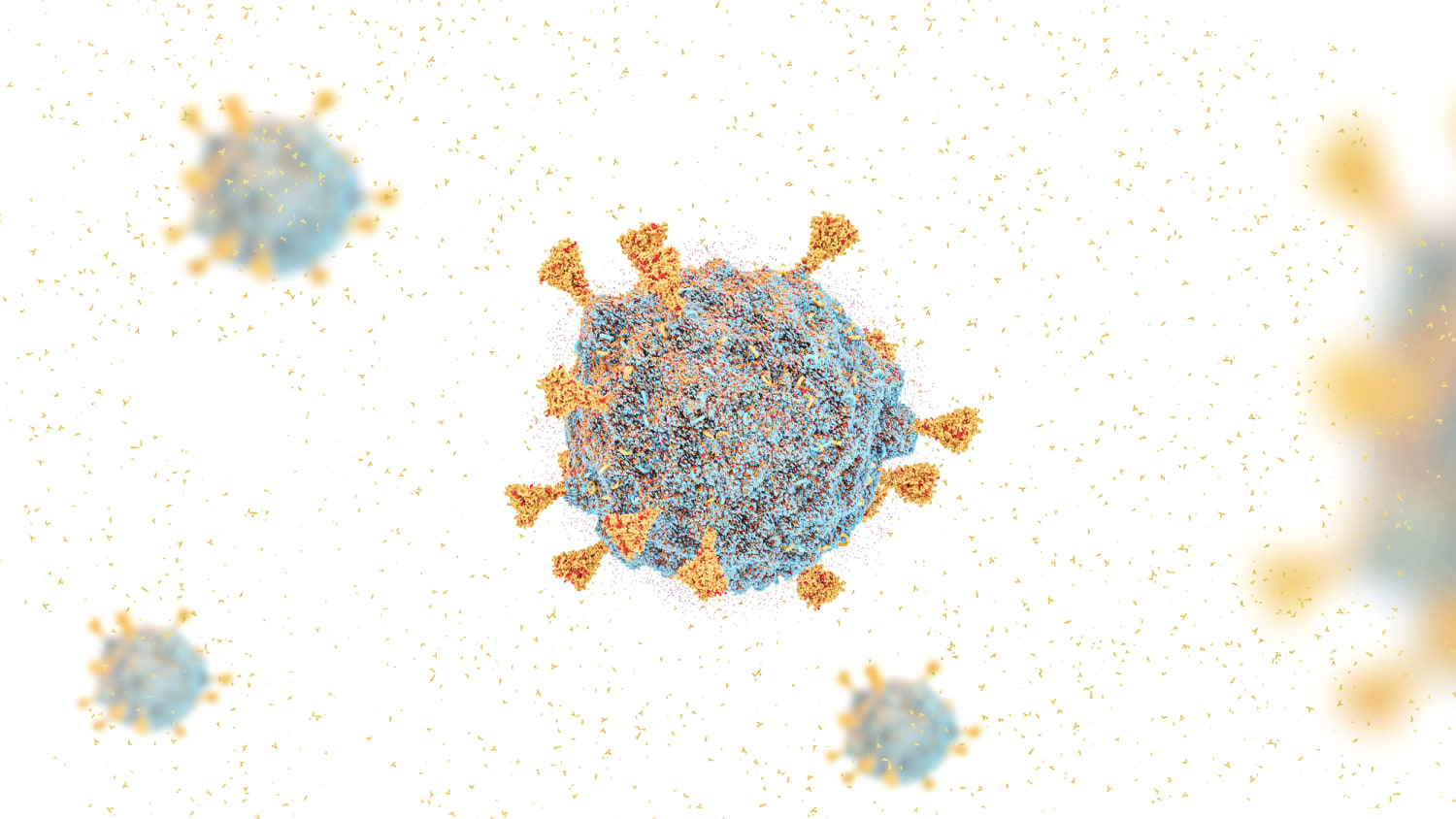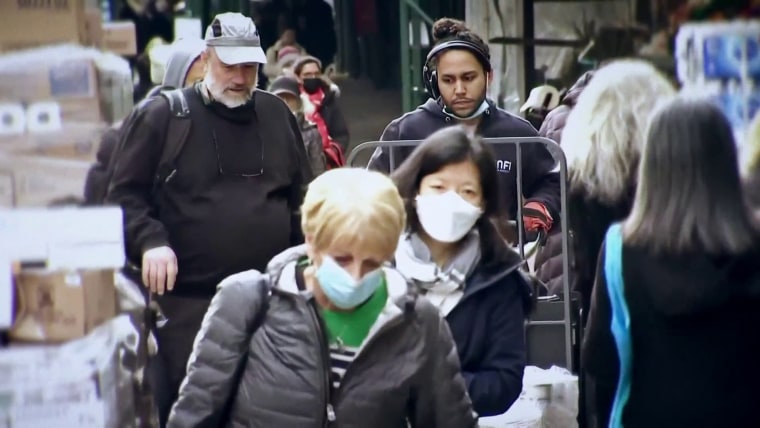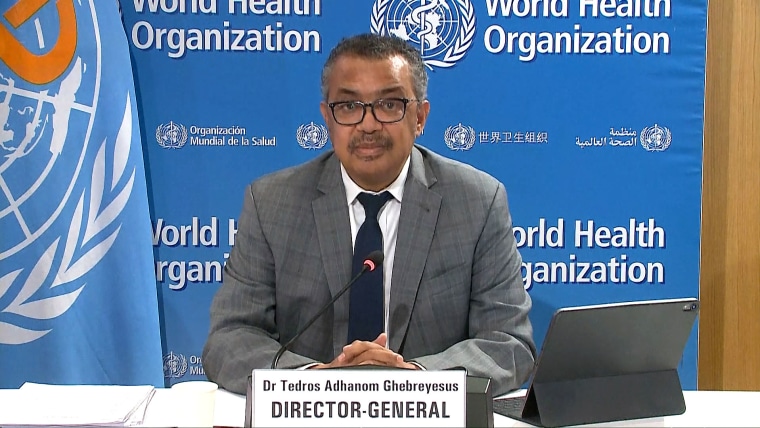As cases of infection with the omicron variant of the coronavirus multiply around the world, scientists are racing to characterize the heavily mutated variant to understand how it spreads and gauge new risks during this wave of the pandemic.
Preliminary studies released this month have offered some clues about the effectiveness of vaccines against the omicron variant and whether it causes more severe illness, but much remains uncertain, and more research is needed.
Here’s what’s known so far about the omicron variant.
Why is omicron a concern?
Variants like omicron are the biggest threat to any end to the pandemic — and scientists warn that they will continue to emerge as the virus spreads.
The omicron variant features more than 30 mutations to the virus’ spike proteins, which cover the outside of the virus and are the main targets of vaccines and treatments like monoclonal antibodies.
It’s possible that the mutations help the variant spread more easily and that they could enable it to evade protective antibodies generated by vaccines or through natural immunity from previous infections. The World Health Organization said in an update Tuesday that the omicron variant is spreading faster than any previously detected strain of the coronavirus.
Does the omicron variant cause more severe illness or symptoms?
Evidence so far doesn’t suggest that’s the case, but it may be too early to tell.
The first major real-world analysis of the variant, released this month, looked at cases in South Africa, where it was first identified last month. The results suggest that it may cause less severe illness than the delta variant, which is still the dominant strain of the coronavirus in most countries. South African health officials found that on average, 29 percent fewer people were being admitted to the hospital than during the previous wave of delta infections.
Although the data are encouraging, experts have said it’s too soon to know whether the omicron variant does, indeed, cause milder illness or whether other factors, including South Africa’s younger population, play a role.
In the U.S., too, the first few dozen confirmed omicron cases have been mostly mild, the Centers for Disease Control and Prevention said.
The CDC studied 43 people infected with the variant, one of whom was hospitalized for two days, and found that the most commonly reported symptoms were cough, fatigue and congestion or a runny nose. More than three-quarters of the participants were fully vaccinated, and one-third of those people had also had booster shots, according to the CDC.
The CDC’s director, Dr. Rochelle Walensky, called the report a “starting point,” adding that the agency will continue to closely monitor the variant. Experts have also cautioned that even if the omicron variant does cause less severe illness, big spikes in infections could still overwhelm health care systems in hard-hit countries.
Is it more contagious?
Most early research suggests that the omicron variant is more contagious than earlier strains of the coronavirus were, but a definitive picture of its transmissibility isn’t yet known.
Case numbers in hard-hit places, such as South Africa and the United Kingdom, are increasing exponentially, which suggests that the variant is highly transmissible, but research continues. Omicron was first identified in South Africa last month, and it took less than three weeks to become the dominant variant in the country. It is also set to overtake the delta variant and become dominant in the U.K., health officials there said.
Are vaccines effective against omicron?
Experts have expressed concerns that the variant’s mutations could allow it to dodge some protective antibodies generated by Covid vaccines.
Early lab studies indicate that it may be somewhat resistant to vaccines, although it probably doesn’t evade them entirely. More research is needed, however, to understand what the preliminary findings mean in real-world settings.
An analysis released Tuesday by South Africa’s largest health care administrator found that two shots of the Pfizer-BioNTech vaccine were 70 percent effective at protecting against hospitalization from infection with the omicron variant, compared to 90 percent protection against hospitalization from the delta variant.
Preliminary data also found that booster shots could play a key role in countering the drop in antibodies against the omicron variant. Pfizer announced last week that a third dose strongly protects against the new variant in laboratory tests — similar to levels of protection that the company’s initial two-dose regimen offered against the original strain — although the findings must be confirmed in real-world settings.
The lab studies confirmed initial suspicions from vaccine makers that the variant could sidestep some protection from vaccines, but scientists have also emphasized that the immune system has other tools that could likely enable it to recognize and fight the virus, even if antibody levels wane.
While the variant may increase the chances of breakthrough infections in those who have been vaccinated, there are no indications so far that vaccinated people infected with it experience more severe symptoms compared to other variants.
Where is it spreading?
Cases have been confirmed in more than 70 countries, according to the World Health Organization.
“The reality is that omicron is probably in most countries, even if it hasn’t been detected yet,” WHO Director-General Tedros Adhanom Ghebreyesus said.
The first case in the U.S. was confirmed Dec. 1 in California. Omicron infections have since been detected in at least 35 states, and the variant now accounts for nearly 3 percent of newly reported infections in the country, according to the CDC. In some parts of the U.S., the figure is much higher: Walensky said Tuesday that the variant accounts for about 13 percent of new cases reported in New York and New Jersey.
Are kids at risk?
It’s not yet known whether the variant poses a higher risk to infants and children compared to previous variants.
Scientists are closely monitoring regions of the world where the omicron variant is spreading widely, including South Africa and the U.K., to better understand its effect on children.
Source: | This article originally belongs to Nbcnews.com












